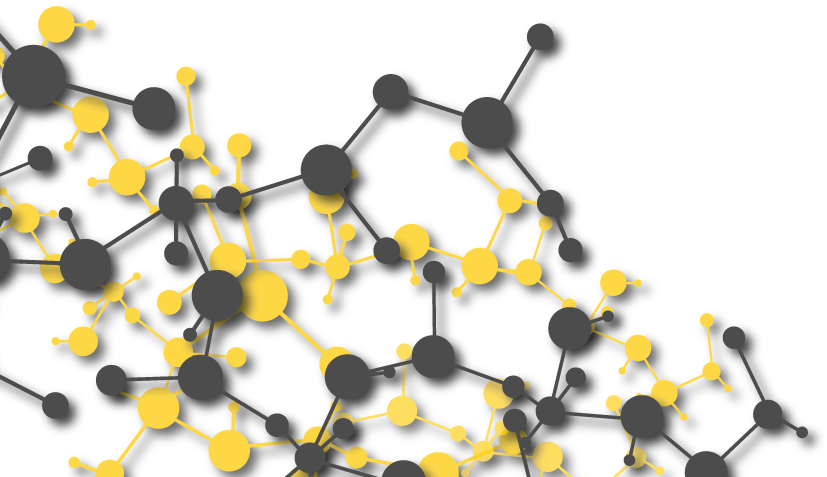Thermoplastic polyurethanes, also known as TPUs, are a unique category of plastic created via polyaddition reactions between diisocyanates and one or more diols.
-2.png?width=993&height=503&name=PDO%20(1)-2.png)
The term thermoplastic refers to a material that becomes pliable and malleable upon heating and solidifies on cooling. Thermoplastic materials can be melted and molded multiple times and are capable of being reprocessed numerous times without losing structural integrity.
The term polyurethane refers to a useful type of polymer joined together by urethane monomers that are produced via the reaction of an isocyanate and a polyol.
Properties of Thermoplastic Polyurethane
Thermoplastic polyurethane blends together the useful properties of polyurethane products with the ease of use and reprocessable characteristics of thermoplastics to form a plastic ideal for applications in a wide range of fields and industries. TPU can be extruded or injection molded on conventional thermoplastic manufacturing equipment, allowing for ease of production.
TPUs have many clear advantages and useful properties, including their abrasion resistance, elasticity, resistance to oils and greases at a wide range of temperatures, impact resistance, and flexibility. TPU is the ideal thermoplastic for low-temperature applications where abrasion resistance and flexibility are required.
There are two main types of thermoplastic polyurethanes: polyester-based TPUs and polyether-based TPUs. The two types of TPUs differ in their choice of the soft segment of the chain, with polyester-based TPUs traditionally employing polyesters derived from adipic acid esters, while polyether-based TPUs use tetrahydrofuran ethers. The two types of TPUs also have slightly different properties that can be considered when choosing the ideal thermoplastic.
How TPU is Produced
Thermoplastic urethanes are produced through the chemical reaction of a polyol (long-chain diol), a short-chain diol that acts as a chain extender, and a diisocyanate. This results in an alternating chain with substituents known as hard and soft blocks.
The shorter, hard block portion of a TPU is made up of the chain extender and the diisocyanate and acts as a rigid, polar backbone for the plastic. This results in mechanical stiffness and durability. Methylene diisocyanate (MDI) is the most often used diisocyanate for TPUs, and 1,4-butanediol (BDO) is the most common chain extender.
The hard block segment is often crystalline or pseudo-crystalline, which results in a three-dimensional network of cross-links within the polymer. Covalent bonds form this network, yielding high durability and resistance to wear.
Upon heating, cross-links dissipate, allowing for the molding and extrusion of TPUs by traditional manufacturing. The soft block portion is made up of the long-chain diol and produces further flexibility in the TPU. By varying the ratio of soft blocks to hard blocks or by varying the identity of the blocks, the physical properties of the TPU in question can be modified.
Uses & Applications
TPUs are used in a variety of different applications and products. Marketplace applications call for TPUs when desiring plastics that are flexible and resistant to the elements, including products such as wheels, footwear, hosing, piping and tubing, rafts, phone cases, and more.
TPU’s ability to be melted and extruded lends itself to the emerging industry of 3D printing. In addition, TPU can be extruded as a filament through a printer head and deposited in fused filament deposition printing or can be used for techniques such as selective laser sintering or 3D inkjet printing.
Benefits of TPU
The benefits of TPU are numerous in a variety of market uses. Because of the customizability and variation associated with swapping out different chemical compounds in the hard block, soft block, and chain extension components of the polyurethane, TPUs can be assembled in a multitude of ways to best suit the needs of the application.
The ability for TPUs to be tailored for their target environment – combined with their tensile strength and flexibility – create the ideal, customizable thermoplastic for low-temperature, aggressive environments and applications.
With their high abrasive and chemical resistance and good tensile strength, polyester-based TPUs are ideal for applications such as automotive parts and industrial machine parts. Polyether-based TPUs are highly flexible at a wide range of temperatures and have high hydrolysis and microbial resistances, making them useful for medical applications.
The large assortment of options for customizability and the ease of working with TPUs make them perfect for numerous applications.
For more than 50 years, Gantrade has served as an experienced, world-class supplier of chemicals, including a wide variety of polyesters, polyurethanes, and thermoplastics. To learn more about the tailor-made production of TPUs to meet your polyurethane needs, contact us, or to request a Safety Data Sheet (SDS), use this form.















